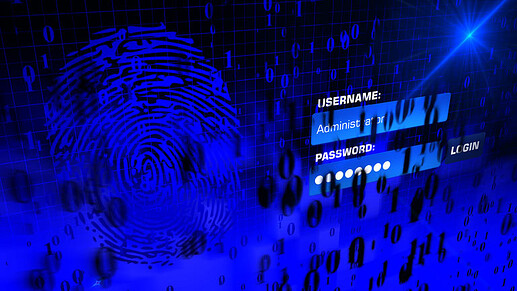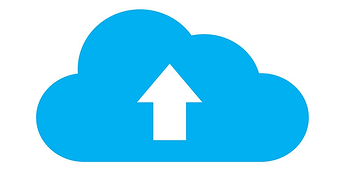There’s a lot of things we can do online. Businesses thrive because of online transactions, this is because of the ease and convenience it offers when done this way. It also reduces overhead cost so you get better prices when you purchase online. Government and other social service offices are now going online to better accommodate its people. Social media has also changed our lives for the better (for most parts). Whatever it is we do online it can’t be denied that connectivity has shaped our world today. We are sharing a lot of information online. Although there is some anonymity to some things, there are other things that are attributed to our identity be it online or in the real world. Data Privacy is not just a job for experts and IT professionals, it is our individual responsibility to safeguard our information so that it won’t fall into malicious hands.
Here are some ways to protect yourself online and to make sure that your data won’t be used against you.
1. Be Careful With Your Personal Information
Don’t be easy in giving away your personal information even if somebody who sounds legitimate and knowledgeable about you asks for it. Avoid scammers who employ phishing techniques or any manipulative methods to get you to spill personal matters that can be used. Try to check with your listed government numbers and/or financial institutions to verify if they are indeed making such requests. These types of requests are usually made through their own portals or business operations.
Also, be careful with unusual links. Always be keen on the URL as some hackers use domain names that would read almost like the real ones (bank or credit card institution) except for one or two characters. Some links are also sent by people you know or associated with your company. You can send a text message to confirm to verify the link sent to you is safe.
2. Don’t Overshare
Avoid sharing too much information about yourself even if they are personal details. This information can be used by scammers to phish out critical details from you. Social media is one of the places people often indicate their birthdays, addresses, mother’s maiden name among others. Some use home-based jobs as bait to make individuals defraud others and be a victim themselves. You can also educate your friends and family about not oversharing. This will also benefit you because they may post some personal details about you that you won’t upload yourself.
3. Protection
Going online without any protection has been just plain playing with fire. Even if you just visit mainstream sites there are still risks that you will be bugged, which will give hackers access to your data. There are a number of anti-virus software available, but Bitdefender and Kaspersky are among the top tier providers that have a big share in the market. Choosing an antivirus can be made easier if you do a little research which will be worth it as it can save you a lot of headaches and money. There’s been some study about a comparison between Bitdefender and Kaspersky which will give you a glance at what each software does and how it matches up with user preference and functionality. Whichever antivirus you may have, it is important to keep it updated as there will always be new types of malware, worms or viruses that might come up.
4. Passwords
Make your passwords hard to remember or guess by people other than yourself. You may consider using a password manager to make difficult passwords or apply a two-step authentication process. Also, don’t forget to update them regularly, keeping an old password for a long time will run the risk of being guessed.
5. Avoid Public Computers and Networks
Be careful when using public computers, especially when they ask for your password or any personal details as they may be captured by malicious individuals. Public Wi-Fi is also not safe to use. If you can’t help but connect to one, do not access your personal accounts or important portals as hackers may be tracking your activities and can capture your details.
6. Monitor Your Finances
Keep track of finances and sign up for alerts for purchases on your credit card. This will help you spot unusual activities in your transactions and you can take action right away.
7. Be Careful of Online Contests and Surveys
There are a lot of scammers that send you messages telling you that you won something and they’ll ask you to input something to claim your prize or fill out a bogus survey that will ask for your personal information. Basically, if they ask for payment or for private details they are just scammers. Try to ask questions to verify their claims and most of them will leave you.
8. Be Informed About Your Financial Institutions Privacy Laws
Try to ask the right questions with your bank about how they handle data privacy. Global Data Protection Regulation established in 2016 to establish protocols to protect EU citizens from cyber attacks. Companies working or having businesses in the EU are required to comply with these laws, regardless of their base of operations. Some of the requirements are:
- Requiring the consent of subjects for data processing
- Anonymizing collected data to protect privacy
- Providing data breach notifications
- Safely handling the transfer of data across borders
- Requiring certain companies to appoint a data protection officer to oversee GDPR compliance
9. Back Your Data Up
In the unfortunate event that you’ve fallen victim to a data breach, there is a big possibility that you can’t get your data back. It would be good practice to regularly back your data to some external site or device. This way you can be assured that if some hacker will hold your data for ransom, it won’t be that much of a headache.
In whatever we do, we must always take good care of our personal information as it won’t only affect but those close to us as well. We cannot escape the internet, with every advancement in technology, it always ties up with the world wide web and even the most basic thing we do daily is up there. Taking into account these few steps to make sure we protect ourselves is a start and will be beneficial for you as you navigate this brave new world of online connectivity.


 !
!